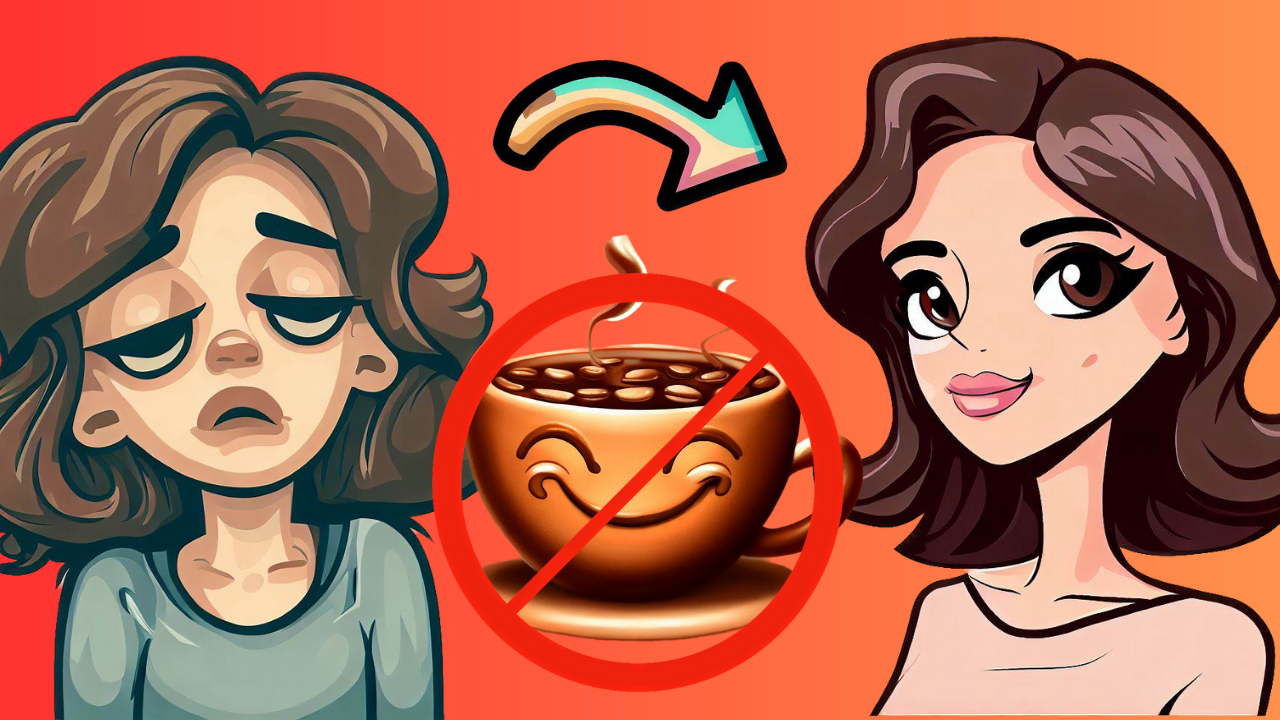30 Days Without Caffeine - Surprising Effects

Hey Ninjas,
Lately, we have experimented with caffeine and its use of it.
So today we're diving deep into the world of caffeine. You might be thinking, "30 days without my beloved coffee? Madness!" But bear with me, because the benefits are genuinely transformative.
Understanding Caffeine: The Basics Before we embark on this caffeine-free journey, let's get to grips with how caffeine works. It's not just about understanding the next section but also about being an informed caffeine consumer. Dopamine - our body's little 'feel good' messenger. We're on cloud nine when dopamine binds to its receptors, feeling rewarded and energized. On the other hand, adenosine is the party pooper. Adenosine builds up as the day wears on, making us want to hit the sack. Enter caffeine. It's like the bouncer at the club, blocking adenosine from getting in. So, we don't feel tired. But, when caffeine's effects fade, adenosine comes rushing in, and we're hit with a wave of fatigue. Moreover, caffeine gives dopamine receptors a little boost, making us more receptive to stimuli. This is why that morning cuppa feels so darn good. But breaking this cycle, though tough, has its perks.
The Caffeine-Free Timeline Days 1-4: If you're a caffeine aficionado, the first few days will be a rollercoaster. Expect mood swings, headaches, and even flu-like symptoms. But hang in there! By days 4-5, many report better mood stability and hunger regulation.
Days 5-7: Here's the magic. Without caffeine's highs and lows, your energy levels even out. No more "micro fatigues" hidden by another coffee.
Days 8-10: Caffeine messes with our sleep by causing a cortisol spike. But a week in, you'll likely sleep like a baby. And we all know the wonders of good sleep, right?
Days 11-20: Now, the tables have turned. You control caffeine; it doesn't control you. And the glow-up is real - your skin, especially around the eyes, starts radiating health.
Days 21-30: The initial brain fog post-caffeine might have you doubting your choices. But give it time. By the end of the month, your cognitive functions could be at their peak. It's like unlocking a new level of superhuman.
The Financial Perk A little bonus for those of you splurging at coffee shops: calculate your savings after 30 days without caffeine. The numbers might surprise you!
To Caffeinate or Not to Caffeinate? We’re not here to demonize caffeine. It's about mastering it. Maybe take a 15 or 30-day break annually. Or have caffeine-free weekends. It's all about balance and understanding how to use caffeine strategically.
For a deeper dive into using caffeine like a pro, check out our video on the "Four Rules for Strategically Using Caffeine." (https://youtu.be/zCdBvsteN3Q?si=imw4FcLizowVPHum)
🎬Our Videos This Week
https://youtu.be/0tLV_hAJ7T0?si=0GEs6X3emITxnuxK - Discover the incredible benefits of quitting caffeine for 30 days. Learn how caffeine affects your brain, the withdrawal symptoms you may experience, and the positive changes you can expect in your mood, sleep quality, and cognitive function. Follow our four rules for strategically using caffeine to become superhuman.
🤟Great Stuff We Found This Week
🍿Video: https://www.youtube.com/watch?v=iRjxd2VHavY&t=1617s - This Deep Dive With Ali Abdaal and Steven Bartlett has a pretty interesting topic: The Framework of Quitting. Being able to recognize how or when to quit before something gets in the way of your well-being or when tasks become too tedious is important. Quit the things that add low value and are a struggle, continue with the things that are fun and create the most value.
🎙️ Podcast: https://www.youtube.com/watch?v=bnuQ0HPcudQ - We thoroughly enjoyed this interview with Eric Siu and Leila Hormozi, as we at this moment are building a new team in our work lives that needs to function as a minor startup focusing on innovation inside a corporation with 2.300 employees. They provided lots of great advice on building teams, hiring and firing, management, operations, and other skills necessary that can be used in both corporate and startups. We found the discussion on why founders want to step away from their businesses particularly interesting, as it helps identify specific pain points.
🥸Quote of the Week
"Productivity is never an accident. It is always the result of a commitment to excellence, intelligent planning, and focused effort."
- Paul J. Meyer
❓ This Week Anki-Questions❓
What is dopamine?
- Answer: Our body's little 'feel good' messenger. (Dopamine is a neurotransmitter that acts as a chemical messenger in the brain. It plays a role in reward-motivated behavior and is associated with feelings of pleasure, satisfaction, and well-being.)
What is adenosine?
- Answer: The chemical that builds up in our body as the day wears on, makes us feel tired. (Adenosine is a nucleoside that naturally accumulates in the brain throughout the day and contributes to feelings of fatigue and drowsiness. As adenosine levels increase, it binds to adenosine receptors in the brain, which slows down neural activity and promotes sleep. Caffeine blocks adenosine from binding to these receptors, which can lead to increased neural activity and feelings of alertness and wakefulness.)
What does caffeine do to adenosine?
- Answer: It blocks adenosine from getting into our receptors, so we don't feel tired.
What are the benefits of going caffeine-free for 30 days?
- Answer: Better mood stability, hunger regulation, even energy levels, better sleep, improved skin health, and potentially better cognitive function.
How can we use caffeine strategically?
- Answer: By taking periodic breaks from it, such as 15 or 30-day breaks annually or having caffeine-free weekends, to achieve a balance and not let caffeine control us.
